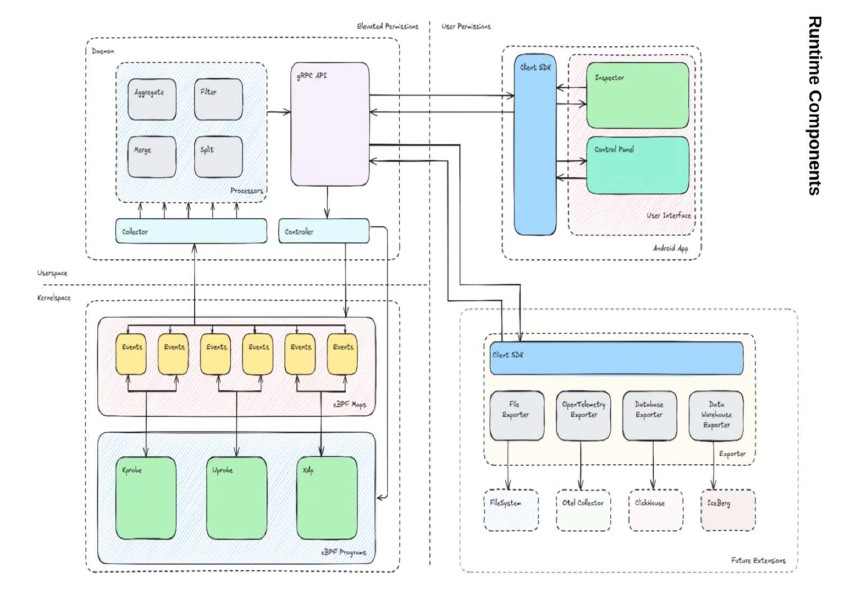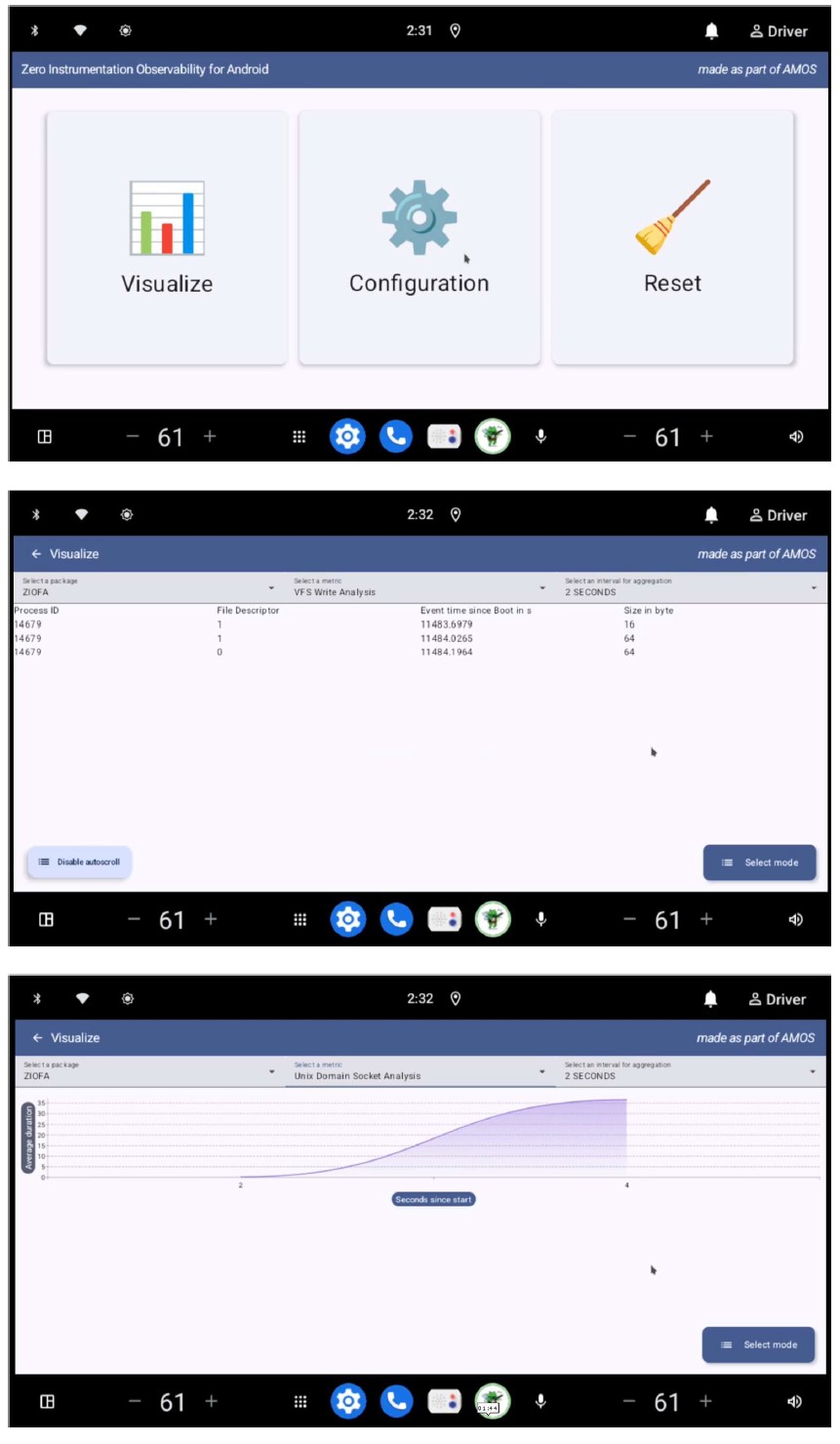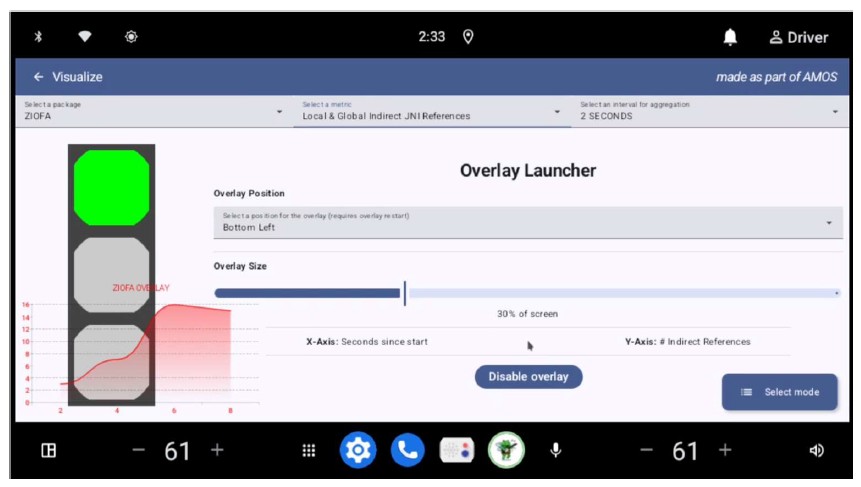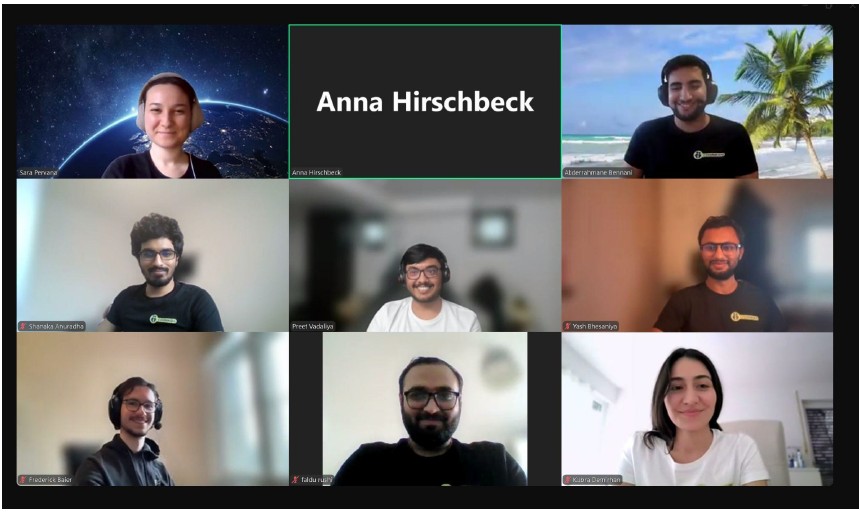This project is one of the Scrum projects with industry partners that were part of the AMOS Winter 2024/25 Projects. Below please find the video (you may also like the other videos) and the project summary which details the final result of the project. We run these projects every semester, so please be in touch if you would like to motivate one of your own!
Demo Video
Project Summary
| Project Name | Zero Instrumentation Observability for Android |
| Project Mission | Creating a long term solution to test and collect debugging data from the Android- Kernel for Car Based software, utilizing eBPF. |
| Industry Partner | e.Solutions gmbh |
| Team Logo |  |
| Project Summary | Persona: Alex – Android Automotive OS Developer Alex is a senior software engineer working on in-car infotainment systems. His team frequently faces app performance issues but struggles to debug them because they lack access to source code or real-time system insights. User Story 1 – Eliminating UI Freezes with eBPF “As an Android Automotive OS developer, I want to track blocking system calls in real-time so that I can identify and eliminate UI lags that degrade the user experience.” Why it matters: eBPF-powered observability allows Alex to monitor system calls that slow down the UI thread, visualizing delays as charts. This helps the team fix performance bottlenecks without modifying application code. User Story 2 – Protecting Flash Storage in Cars “As a system engineer, I want to track excessive write operations in real time so that I can extend the lifetime of in-car flash storage.” Why it matters: Continuous, high-frequency writes wear out flash storage, especially in vehicles designed to last a decade or more. The eBPF-based solution tracks all writing syscalls and reports their frequency and size, helping engineers optimize storage usage before failures occur. User Story 3 – Debugging Memory Leaks Without External Logs “As a tester, I want to see real-time garbage collection and heap size data onscreen while running an app so that I can identify memory leaks faster.” Why it matters: Current debugging methods require pulling logs from external devices, slowing down development. The eBPF-based approach enables real-time overlays for JVM garbage collection and heap tracking, making memory debugging faster and more intuitive. ………………………………………………………………………………………………………………………………………………………………….. The Pitch: Our project brings zero-instrumentation observability to Android Automotive OS. By leveraging eBPF tracing, developers gain real-time performance insights without modifying app code. This is a game-changer for debugging, optimizing, and ensuring long-term reliability in automotive software. We differ from traditional approaches as we do not need to modify the Kernel which limits the changes that need to be made and doesn’t compromise the security. |
| Project Illustration |    |
| Team Photo |  |
| Project Repository | https://github.com/amosproj/amos2024ws03-android-zeroinstrumentation/ |
